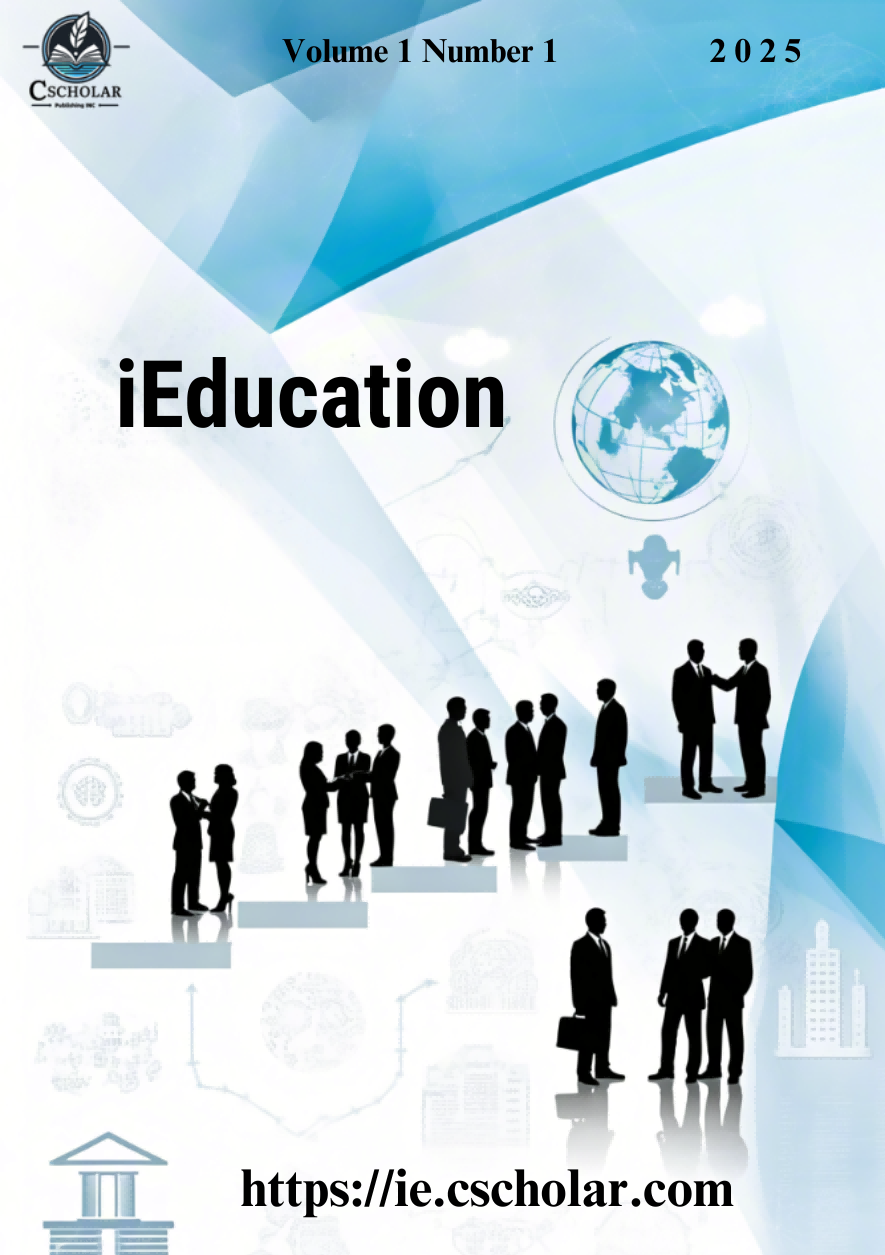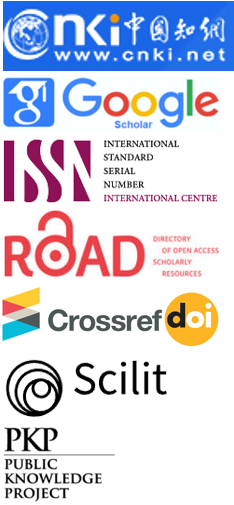The Emotional Landscape of EFL Internships: Challenges and Growth Through Perezhivanie
DOI:
https://doi.org/10.71204/4trcx684Keywords:
Teacher Identity Formation, Perezhivanie, Emotional Experiences, EFL Interns, Longitudinal qualitative studyAbstract
The transition from student to teacher in EFL contexts involves significant emotional and identity challenges, yet existing research often overlooks how affective experiences mediate professional growth. This study investigates the emotional challenges and professional identity development of English as a Foreign Language (EFL) interns during teaching practicums, framed through Vygotsky’s concept of perezhivanie—the dialectical interplay of emotion and cognition in lived experiences. Employing a longitudinal qualitative design, the research traces four Chinese EFL interns over a four-month internship via reflective diaries, recall interviews, and mentor narratives. Findings reveal that interns faced multifaceted challenges, including non-English teaching assignments, classroom emergencies, cultural adaptation pressures, and role ambiguity. These tensions, however, catalyzed growth through perezhivanie-driven reflection. Critical incidents (e.g., student conflicts, pedagogical failures) prompted cognitive reframing, enabling shifts from scripted imitation to agentic, context-responsive teaching. Structured mentorship and institutional scaffolding emerged as pivotal, enabling interns to transition from performative imitation to agentic, context-responsive teaching. Urban interns with systematic support achieved ethical coherence, while suburban/rural counterparts grappled with role fragmentation due to resource constraints. The study underscores the need for teacher education programs to integrate emotional scaffolding, context-sensitive mentoring, and communal recognition rituals to transform affective struggles into developmental resources. By reconceptualizing professional identity as a socioculturally mediated process, this research advocates for holistic internship models that bridge theory-practice divides and foster ethically resilient educators.
References
Agnoletto, M. A., De Carvalho Kuerten Dellagnelo, A., & Johnson, K. E. (2022). Perezhivanie in Action. Language and Sociocultural Theory, 8(2), 153–179.
Agnoletto, M. A., Dellagnelo, A. K., & Moritz, M. E. W. (2020). The role of responsive mediation in the development of a novice English teacher’s understanding of the teaching of listening. Revista de Estudos Da Linguagem, 28(3), 1099–1130.
Barahona, M., & Toledo-Sandoval, F. (2025). Exploring Chilean EFL Student Teachers’ Development of Teacher Identity Through Perezhivanie. Journal of Language, Identity & Education, 24(1), 57–72.
Beijaard, D., Meijer, P. C., & Verloop, N. (2004). Reconsidering research on teachers’ professional identity. Teaching and Teacher Education, 20(2), 107–128.
Borg, S. (2009). Language Teacher Cognition. In A. Burns & J. C. Richards (ed.), Cambridge Guide to Second Language Teacher Education (Book 1, p.163–171). Cambridge University Press.
Britzman, D. P. (2007). Teacher education as uneven development: Toward a psychology of uncertainty. International Journal of Leadership in Education, 10(1), 1–12.
Bruner, Jerome Seymour. (2009). Actual minds, possible worlds. Harvard university press.
Clandinin, D. J., & Connelly, F. M. (2000). Narrative inquiry: Experience and story in qualitative research (1. ed., 1. PB print). Jossey-Bass.
Collins, A., Brown, J. S., & Holum, A. (1991). Cognitive apprenticeship: Making thinking visible. American Educator, 15(3), 6–11.
Dang, T. K. A. (2013). Identity in activity: Examining teacher professional identity formation in the paired-placement of student teachers. Teaching and Teacher Education, 30, 47–59.
Darby, A. (2008). Teachers’ emotions in the reconstruction of professional self-understanding. Teaching and Teacher Education, 24(5), 1160–1172.
Day, C., & Leitch, R. (2001). Teachers’ and teacher educators’ lives: The role of emotion. Teaching and Teacher Education, 17(4), 403–415.
Flores, M. A., & Day, C. (2006). Contexts which shape and reshape new teachers’ identities: A multi-perspective study. Teaching and Teacher Education, 22(2), 219–232.
Golombek, P., & Doran, M. (2014). Unifying cognition, emotion, and activity in language teacher professional development. Teaching and Teacher Education, 39, 102–111.
Golombek, P. R., & Johnson, K. E. (2021). Recurrent restorying through language teacher narrative inquiry. System, 102, 102601.
Hargreaves, A. (1998). The emotional practice of teaching. Teaching and Teacher Education, 14(8), 835–854.
Johnson, K. E., & Golombek, P. R. (2016). Mindful L2 Teacher Education: A Sociocultural Perspective on Cultivating Teachers’ Professional Development . Routledge.
Johnson, K. E., & Worden, D. (2014). Cognitive/emotional dissonance as growth points in learning to teach. Language and Sociocultural Theory, 1(2), 125–150.
Karimi, M. N., & Mofidi, M. (2019). L2 teacher identity development: An activity theoretic perspective. System, 81, 122–134.
Lave, J., & Wenger, E. (1991). Situated Learning: Legitimate Peripheral Participation. Cambridge University Press.
Lim, H.-W. (2011). Concept maps of Korean EFL student teachers’ autobiographical reflections on their professional identity formation. Teaching and Teacher Education, 27(6), 969–981.
Newman, S. (2018). Vygotsky, Wittgenstein, and sociocultural theory. Journal for the Theory of Social Behaviour, 48(3), 350–368.
Rodrigues, F., & Mogarro, M. J. (2019). Student teachers’ professional identity: A review of research contributions. Educational Research Review, 28, 100286.
Rojas, J. C., Fauré, J., Barril, J. P., Fuentealba Jara, R., Valdebenito Zambrano, V., Almuna, J., Quezada-Carrasco, P., & Salter, P. (2025). Informal learning experiences in the construction and development of professional teacher identity. Learning, Culture and Social Interaction, 51, 100893.
Tharp, R. G., & Gallimore, R. (1988). Rousing minds to life: Teaching, learning, and schooling in social context. Cambridge University Press.
Vygotsky, L. S. (1934). The problem of the environment. The Vygotsky Reader (p.338–354). John Wiley and Sons Ltd.
Wenger, Etienne. (1999). Communities of practice: Learning, meaning, and identity. Cambridge university press.
Wolff, D., & De Costa, P. I. (2017). Expanding the Language Teacher Identity Landscape: An Investigation of the Emotions and Strategies of a NNEST. The Modern Language Journal, 101(S1), 76–90.
Yang, M. (2023). A Review on Pre-service EFL Teacher Identity. Frontiers in Humanities and Social Sciences, 3(7), 29–38.
Zembylas, M. (2007). Emotional ecology: The intersection of emotional knowledge and pedagogical content knowledge in teaching. Teaching and Teacher Education, 23(4), 355–367.
Zhu, G., Rice, M., Li, G., & Zhu, J. (2022). EFL Student Teachers’ Professional Identity Construction: A Study of Student-Generated Metaphors Before and After Student Teaching. Journal of Language, Identity & Education, 21(2), 83–98.
Downloads
Published
Issue
Section
License
Copyright (c) 2025 Lingqin Zeng (Author)

This work is licensed under a Creative Commons Attribution 4.0 International License.
All articles published in this journal are licensed under the Creative Commons Attribution 4.0 International License (CC BY 4.0). This license permits unrestricted use, distribution, and reproduction in any medium, provided the original author(s) and source are properly credited. Authors retain copyright of their work, and readers are free to copy, share, adapt, and build upon the material for any purpose, including commercial use, as long as appropriate attribution is given.








